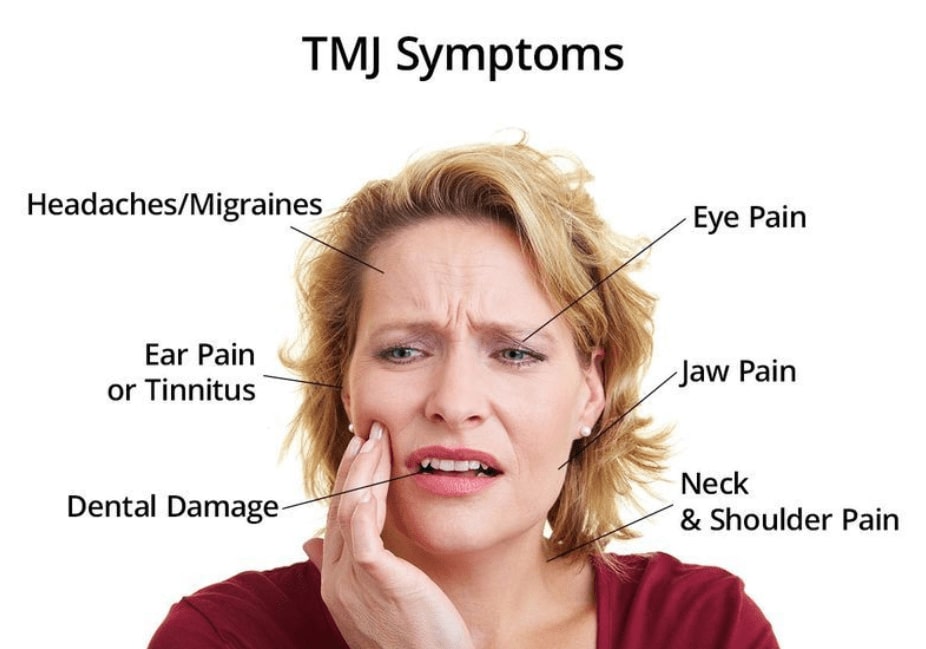BOTOX® for TMJ Disorder
BOTOX® for TMJ Disorder Can Provide Symptom Relief
Temporomandibular joint (TMJ) disorder affects the joint and muscles that connect the jawbone to the skull. To experience relief from headaches and other symptoms that accompany this condition, you can receive BOTOX® for TMJ disorder at North Pier Dental Associates. Well known for its ability to reduce fine lines and wrinkles, BOTOX® also can temporarily relax the affected TMJ muscles to reduce jaw tension.
BOTOX® and TMJ Disorder
The temporomandibular joints are located on both sides of your head and allow the jaw to move up and down and from side to side. When problems arise in these joints, they are collectively referred to as TMJ disorders. They can be frustrating for both doctors and patients because the cause of the problem is often not known. Although BOTOX® is best known in its cosmetic form for reducing wrinkles, it is also used for several medical conditions. A weakened form of the botulinum toxin, BOTOX® works by temporarily paralyzing targeted muscles that control movement. In relationship to TMJ disorder, it is thought to provide symptom relief by reducing spasms in the jaw and/or clenching that puts stress on the mandible. Dr. Couvelis is fully trained to use BOTOX® for the treatment of TMJ disorder and cosmetically to reduce and prevent facial wrinkles.
Although it can take up to a week, most patients experience improvement from their TMJ symptoms within one or two days of their first treatment with BOTOX®.

It is often difficult to determine the cause of TMJ disorder. However, symptoms can be treated even when the cause is unknown.
TMJ Disorder Symptoms
It is important to note that all patients do not experience the same TMJ symptoms and that symptoms can come and go. These may include:
- Headaches
- Teeth Grinding
- Difficulty opening your mouth wide or closing it completely
- Pain in your jaw, ear area, neck, or shoulders
- Eye pain
- Ringing in your ears
- Dizziness
- Facial Swelling
- Difficulty Chewing
- Dental damage
- Jaws that "lock up"
Dr. Couvelis can evaluate your symptoms during a consultation and diagnose TMJ. BOTOX® injections can often relieve headaches that result from teeth grinding and can minimize locking of the jaw. When the jaw muscles relax, you may also experience relief from other associated symptoms.
BOTOX® Injections: What to Expect
Upon your arrival to North Pier Dental Associates, a member of our team will guide you to one of our comfortable dental examination rooms. Dr. Couvelis will carefully inject the predetermined treatment area (typically the jaw muscles) with BOTOX®. Patients seldom report any pain from this; however, some patients may experience minor discomfort that lasts only a few moments. Dr. Couvelis may apply a cold pack or anesthetic cream to the injection area to minimize any discomfort. Your appointment should take only about 15-30 minutes, depending on the number of injections you require. There is no recovery period, and you can resume your normal routine immediately after your office visit.
Results of BOTOX® for TMJ Disorder
Although it can take up to a week, most patients experience improvement from their TMJ symptoms within one or two days of their first treatment with BOTOX®. You may have some mild numbness, redness, or bruising at the injection site, but these are temporary. If muscle tenderness was one of your symptoms, it should begin to disappear almost immediately.
Schedule a Consultation
Evidence indicates that BOTOX® can be highly effective for TMJ disorder. Dr. Couvelis, known for his caring treatment and fine attention to detail, can help you find relief. Contact us to schedule your appointment today.
